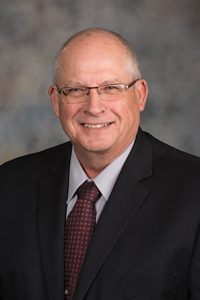Bill would make excavators responsible for locate costs
Breaking ground on new construction projects could become costlier for excavators under a bill discussed by the Transportation and Telecommunications Committee Feb. 13.

Great Plains One-Call Service is a system used by excavators to identify and locate underground facilities prior to excavation to protect the facilities from damage. A notice to the service center is required prior to performing an excavation.
Currently, the cost of locating such facilities is paid by the utility that owns it. LB1031, introduced by Henderson Sen. Curt Friesen, instead would require excavators to pay for the locate requests for large constructions projects.
Friesen said having the utilities bear the expense can cause the cost to be passed on to a utility’s customers, regardless of whether they live in the area that might benefit from the new construction project.
“It’s only fair that the project developers—rather than the utility ratepayers—pay the locate costs for these projects,” he said.
Before undertaking a large construction project, the bill would require an excavator to send notification of a planning meeting to all utilities with facilities in the proposed construction area. The bill defines “large project” as an excavation in any city of the metropolitan, primary or first class measuring more than one mile in length, taking more than 90 days to complete.
For an excavation that does not meet the definition of a large project, the excavator would be required to pay the locate costs after three locate costs are incurred in the same excavation area.
The bill would require the state fire marshal to adopt regulations for large projects to include processes for large project planning meetings, complaint procedures, cost allocation and reimbursement procedures.
Finally, excavators would be prohibited from using mechanical excavating equipment within the marked location of an underground facility until the excavator has made thorough efforts to confirm the facility’s location.
Steve Meradith, Windstream Communications’ vice president of state government affairs, spoke in support of the bill. He said locate costs easily can exceed $1 million by the end of a large fiber optic installation project.
“This would provide an equitable cost distribution mechanism when excavators on large projects create the need for utilities to mark their resources,” Meradith said. “We face competition in our markets, so we can’t simply raise our costs to customers without potential negative consequences.”
Utilities regulated by the Public Service Commission are prohibited from simply passing on costs to their customers because their rates are set by the commission, said PSC Public Advocate Bill Austin.
“This will fairly allocate the costs of locating utilities under the one-call system when a large project is involved,” he said. “There is nothing anti-competitive or anti-business about asking those who need a service to pay the costs.”
Requiring a utility to locate its facilities is a practice used consistently across the country, said ALLO Communications President Brad Moline in opposition to the bill. His company has installed high-speed fiber throughout the state, he said, but requiring companies like his to pay for locate costs would discourage growth and investment in the state.
“Between 2016 and 2018, we invested almost $250 million in the state,” Moline said. “We want to continue expanding in Nebraska, not only in our existing communities, but in additional ones.”
David Young, fiber infrastructure manager for the city of Lincoln, also opposed LB1031. As the owner of five utilities, Lincoln would benefit from not having to pay locate costs, he said. However, Young said, the city must prioritize developing the community and encouraging large projects like the ALLO installation.
“The original purpose of the locate legislation was to encourage safety,” he said. “When you push the costs onto the excavators, you encourage risky behavior. If it’s going to cost money, they might not make the call.”
The committee took no immediate action on the bill.

